
Churches in California can begin holding services again at a limited capacity, the state announced on Monday.
In a u-turn from a previous plan, the California health department ruled that churches in the state can begin reopening along with in-store retail shopping.
Under the new 21-day policy, houses of worship can hold religious services at up to 25% capacity with a maximum of 100 attendees.
Churches have to implement virus prevention plans, recommend face coverings, set social distancing guidance, and “consider eliminating singing and group recitations.” Any singing or recitations “should be conducted outside,” the department said.
The Thomas More Society had filed a lawsuit against the state on behalf of a Pentecostal church in San Diego, saying that the state had violated First Amendment freedoms by forcing churches to remain closed while allowing some businesses to reopen during the pandemic. The church had asked the U.S. Supreme Court to intervene in its case.
Federal guidance for the resumption of in-person religious services was published on Friday by the U.S. Centers for Disease Control (CDC), after President Trump called on state governors to allow churches to reopen “right now.”
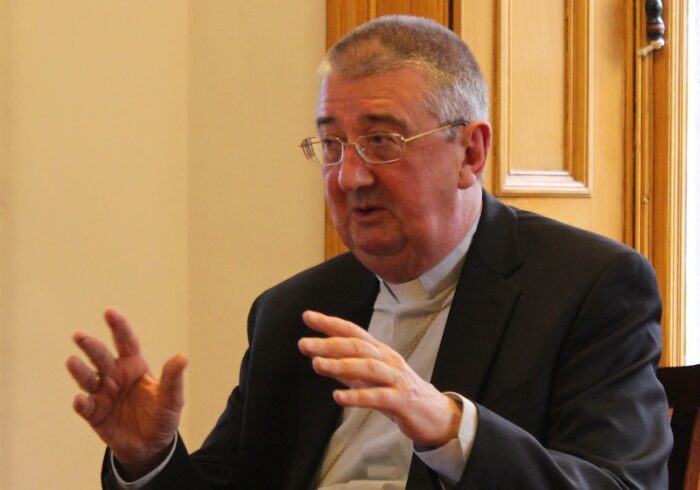
Ireland’s Catholic bishops are speeding up preparations to re-open churches for public Masses in case this is allowed to happen sooner than the July 20th date set in the current Government roadmap.
Archbishop of Dublin Diarmuid Martin said on Monday that the Government would be constantly evaluating progress in reopening society and “it is important that we as Church are ready to respond to any change in the current proposed timescale”.
He said all over Ireland, parishes have been working on plans to open their Churches as soon as it is safe to do so.
“The Irish Bishops pooled suggestions from each diocese and drew up a first Draft Framework document. The Standing Committee of the Conference examined this Framework today and has now moved towards producing a shorter and sharper document, with checklists to enable parishes to monitor where they are on the path forward. That should be available in the next days,” he added.
The Archbishop of Armagh, Eamon Martin also released a statement asking that all “work closely with your priests so that your parish stands ready to respond quickly when the public health authorities tell us it is safe to begin gathering together again for Mass inside our churches”.
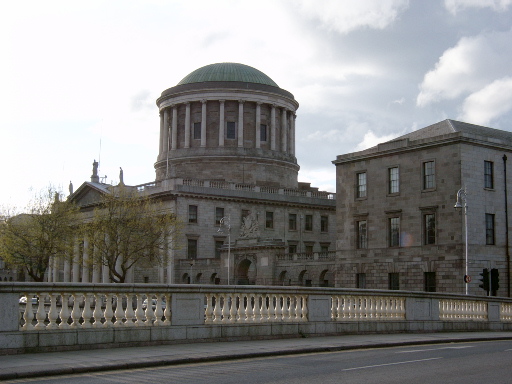
A mother is seeking High Court orders which would effectively result in the death of her daughter, 28, who has been in a vegetative state for almost 10 years.
High Court president Mr Justice Peter Kelly said on Tuesday, if the mother proceeded, that it raised “fundamental” medical, legal and ethical issues in wardship proceedings concerning the daughter.
The mother, and the daughter’s stepfather, had told the HSE they believed the treatment being provided to her daughter at a specialist unit should end.
Because the treatment includes nutrition and hydration, provided by peg tube, that would bring about the early death of the daughter, the judge said.
The mother and stepfather sought to be appointed as the committee to represent the woman’s interests in the wardship proceedings. The Judge said this would create a “very unusual” situation because the committee’s role is to seek what is in the best interests of the ward, whereas they would be seeking to bring about her early death. He opted instead to appoint Patricia Hickey, general solicitor for wards of court.
The judge said the mother may proceed with an application to end her daughter’s current treatment but added that it was not clear the stepfather has any rights in relation to such an application.
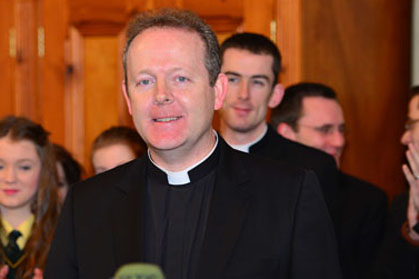
The Archbishop of Armagh supported the Religious Sisters of Charity’s request to surrender ownership of St Vincent’s Healthcare Group to enable the building of the national maternity hospital (NMH), but he would publicly oppose abortions being performed there.
Eamon Martin said in a letter in December to Jude Thaddeus Okolo, the papal nuncio, that work in a maternity hospital should, by definition, be “pro-life”.
“The archbishop [said] there is a serious need for a proper NMH in order to be able to provide high-quality maternity healthcare for mothers and their babies in contemporary Ireland,” said Martin’s spokesman in a statement responding to questions from The Sunday Times.
“He said the carrying out of abortions or morally illicit medical procedures at the NMH would be repugnant” to Catholic teaching and “regardless of the eventual outcome of the proposed transfer, the church will remain clear in its public statements that there is no place in a maternity hospital for abortion”.
Additionally, Martin told Okolo that an accusation made by some people “that the sisters were engaged in formal or proximate co-operation with abortion” was unsustainable as their intention to transfer their ownership predated “the regrettable removal of the eighth amendment [which] sadly had given way to a much more liberal abortion regime in this country”.
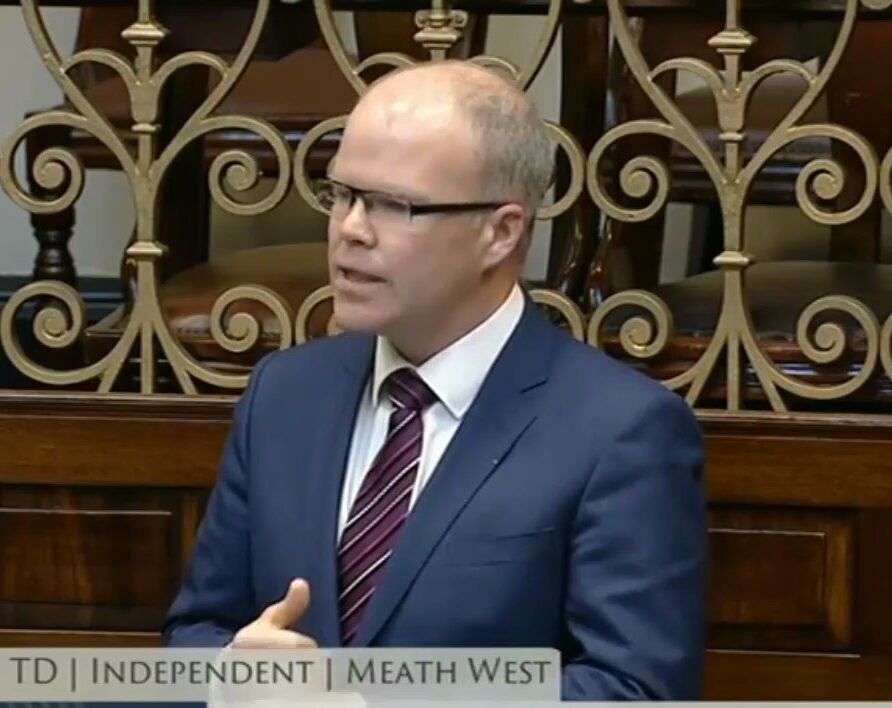
It is estimated that 10,000 extra abortions have taken place since the procedure was legalised over a year ago.
That’s according to the leader of Aontú, Peader Tóibín, extrapolating from figures provided by the Southern Taskgroup on Abortion and Reproductive Topics (START).
Speaking on the 2nd anniversary of the deletion of the Right to Life from the Constitution, Aontú Leader Peadar Tóibín TD said in every country where abortion is legalised, the rates of abortion increase radically and the evidence so far indicates that this has happened in Ireland too. “If the abortion providers’ representative group are correct, then 10,450 extra lives have been lost in the 14 months that have passed since the abortion service was created. This is a significant loss of life, multiples of what’s been lost to Covid”.
He said the vast majority of women opt for abortions for “socio-economic reasons”, with many feeling they have “no choice” because of the economic situation they are in.
Nonetheless, “We have seen absolutely no evidence in the 2 years since the referendum that the government have focused on supporting mothers financially to ensure that they actually have a choice when it comes to the birth of their children”.
The Aontú leader also revealed that during the course of government formation talks which Aontú withdrew from last week, the topic of the rights of unborn children was met with little enthusiasm by Fine Gael and Fianna Fáil.
“It was abundantly clear to us that neither political party had any appetite for any change in the law to make it even marginally more humane. And indeed, we received no assurances that either Fianna Fáil or Fine Gael would prevent further deregulation of the human Right to Life when the law comes up for review next year”.
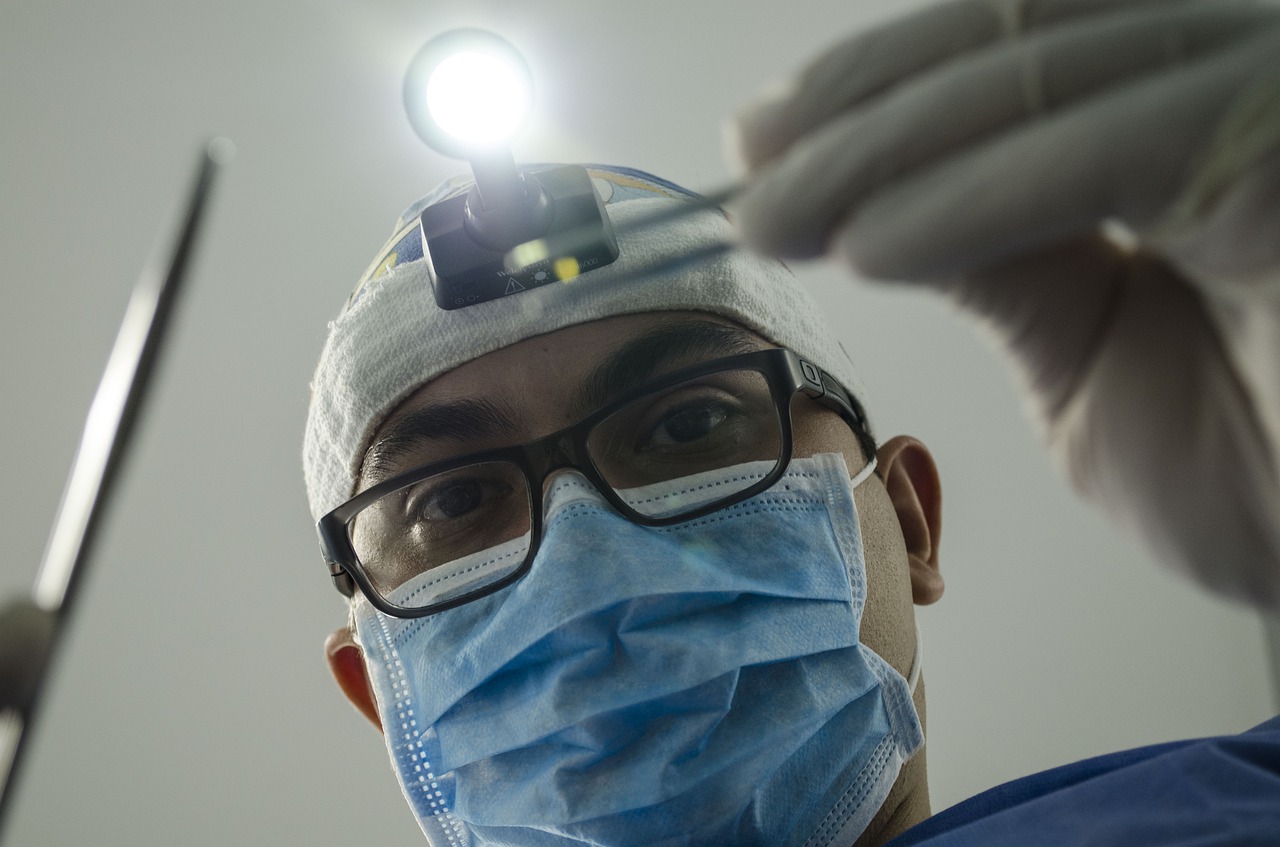
The board of St Vincent’s Healthcare Group (SVHG) has said no “vested interest” will veto procedures at the new national maternity hospital (NMH), that is to be built on the grounds of St Vincent’s, Elm Park.
This means all medical procedures permitted in Irish law, including elective abortions, will be provided for.
St Vincent’s was founded by the Sisters of Charity in 1834.
It is not clear whether the values underpinning St Vincents—human dignity, compassion, justice, quality and advocacy—or the Christian values that inspired the work of Sr Mary Aikenhead, will have any bearing on what procedures are carried out.
The SVHG healthcare group comprises St Vincent’s University Hospital and St Vincent’s Private Hospital at Elm Park in Dublin, as well as St Michael’s hospital, Dún Laoghaire. All are owned by the Sisters of Charity, who have had no role at the hospital group since 2017 when their representatives resigned from its board.
Earlier this month it was announced that the Vatican had approved a decision by the Sisters “to transfer the entire issued share capital of St Vincent’s Healthcare Group to St Vincent’s Holdings for the nominal sum of €1”.
Dr Peter Boylan, life governor and former master at the National Maternity Hospital, asked whether the Sisters will transfer their property, assets and services into a Vatican-approved entity known as a public juridic person of pontifical right. This, he said, would oblige them to submit an annual ‘stewardship accountability report’ to the Vatican. “It is hard to see how such a report could include the numbers of elective sterilisations, abortions and artificial fertilisation procedures carried out in the hospital in the year, and continue to be approved by the Vatican,” he added.

In the US state of Minnesota, Catholic and Lutheran leaders have told the Governor they are reopening their churches for services ahead of his published schedule.
Governor Tim Walz had announced that shopping malls, beauty salons, tattoo parlours, & casinos could open, but churches must restrict services to ten people.
The Catholic bishops and Lutheran Synod, however, now say they will recommence worship services on Tuesday while instituting rigorous social distancing and hygiene protocols.
Their first Sunday services will then be held on Pentecost Sunday, May 31st.
In Ireland, public worship including Mass will not return until July 20th.

Finland is the world’s happiest nation for the third year running, experts at the United Nation have declared.
Researchers for the World Happiness Report asked people in 156 countries to evaluate their own levels of happiness, and took into account measures such as GDP, social support, personal freedom and levels of corruption to give each nation a happiness score.
Ireland has dropped to 16th place on the latest list, down two spots on the previous list.
As in each of the previous seven reports, Nordic states dominated the top ten, along with countries such as Switzerland, New Zealand and Austria.
Luxembourg also edged into the tenth spot for the first time this year.
The happiest countries are those “where people feel a sense of belonging, where they trust and enjoy each other and their shared institutions,” John Helliwell, one of the report’s authors, said in a statement. Issues like family breakdown are not included.
“There is also more resilience, because shared trust reduces the burden of hardships, and thereby lessens the inequality of well-being”, said Helliwell.
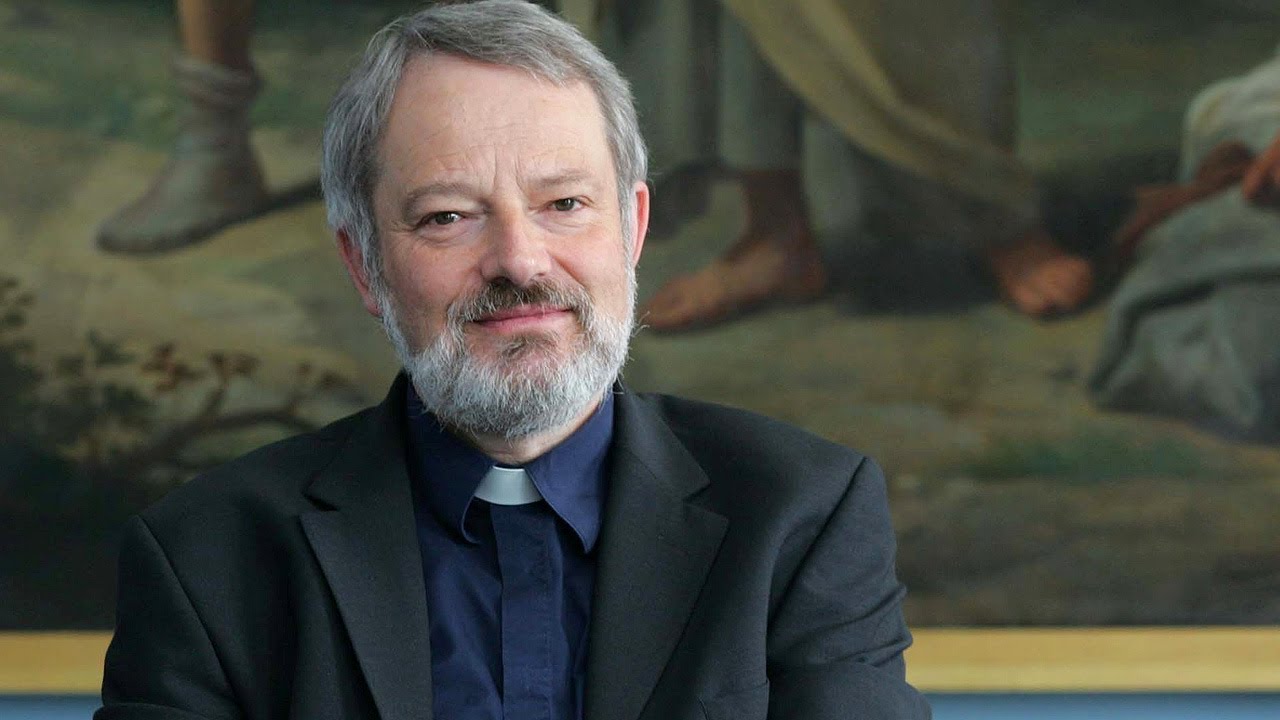
The Bishop of Elphin has told Ocean FM that he and other bishops of the Tuam province are preparing a plan to enable public mass to safely resume in churches before the 20th of July.
Under the government’s roadmap of phased re-openings, restrictions on public worship won’t be lifted until the third week in July.
Kevin Doran says any earlier opening would be contingent on approval from the public health authorities.
Bishop Doran says the size of congregations would have to be reduced in size – and signalled that some parish may consider staggering mass attendances by townland or area over the course of a weekend, to enable all parishioners attend church again.
He stressed that parishes will be relying on members of their congregations to assist with stewarding and cleaning, as churches begin to re-open.

A large majority of people believe the Covid-19 pandemic has made the public rethink their attitudes toward the dying, a new survey by the Irish Hospice Foundation has found.
The poll by market research firm Behaviour & Attitudes found that 68 per cent of people felt that the virus had made people rethink how it deals with dying, death and bereavement.
Chief Executive of the Irish Hospice Foundation, Sharon Foley said: “We know from our work over 30 years that Irish people want a society where death and bereavement is openly talked about and not hidden away, where people can die with dignity and that supports and services are in place for end of life and for loved ones who are bereaved”.
The research also showed the significant impact of lockdown measures restricting the numbers at funerals. 89% of people said that being with extended family and friends is key to grieving.
Ms Foley added: “We know that grieving in isolation has resulted in doubtless suffering for many individuals and families. That is why we have written to the National Public Health Emergency Team calling on them to increase the number of people allowed to attend funerals while maintaining social distancing and other public health measures.”
In addition the charity has called for “a national response” in the wake of the pandemic and for the next government to develop a new “whole of government strategy” to “end of life care.”
Among the proposals in a seven-point policy document published by the charity is a suggestion that end of life and palliative care services be set up in nursing homes, the sector worst hit by the pandemic, and that people be allowed to die at home or their place of preference.
https://hospicefoundation.ie/irish-rethink-death-and-bereavement-post-covid-19/